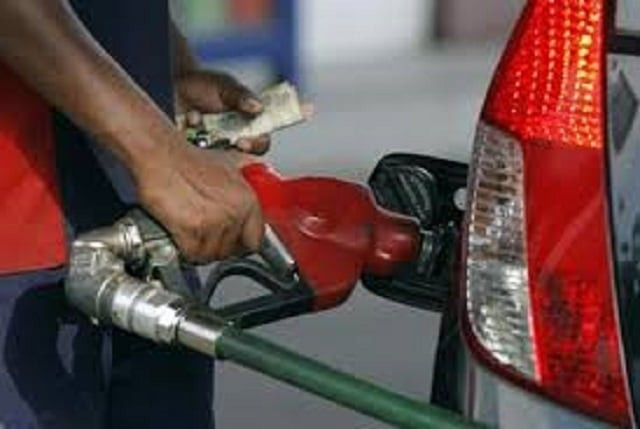Understanding the misconception of Pakistan’s petrol prices
High time partisan and incorrect views are abandoned by electronic media, politicians.

PHOTO: REUTERS
It is alleged that elsewhere and in the region, governments have passed on the benefit to people and consumers due to which inflation has been reduced there and competitiveness has increased. It is also said that one of the reason of rising cost of production and falling exports is the allegedly incorrect policies of the government.
In India, there is regional pricing of petroleum. We have taken the retail prices of petrol in Mumbai where there is significant petrol consumption and the market operates relatively well.
It can be seen that both diesel as well as petrol prices in US cents in India are higher than in Pakistan. Prior to this, in India, diesel prices used to be lower than in Pakistan, while petrol prices used to be higher than in Pakistan.
Now, in case of both, petrol and diesel, prices in Pakistan are lower, and quite significantly at that, as can be seen readily in the table.
It is ironic that not only TV anchors and ordinary discussants have adopted a misconception regarding petrol prices; some noted economists who have held positions in the past have also taken this position. Or it has become a national past time to comment without checking the facts.
Higher taxes
A possible reason for this misunderstanding appears to be the increase in taxation in relative terms. The government claims that it has kept the taxation constant in absolute terms, which due to reduction in oil prices, shows itself as high in relative terms. Otherwise, who can deny that we have paid as much as Rs125/litre in the past and now the prices (of petrol) are in the range of Rs70-80/ litre?
Litre price of petrol, diesel up by Rs1; kerosene unchanged
Petroleum has traditionally attracted high taxation in many countries. In Europe, petroleum prices are the highest in the world, around Rs200/litre in most countries due to more than 100% taxation in these countries. Petrol, if not, diesel has been traditionally considered as a luxury item, although no more, it is a luxury. It is a necessity.
Governments in Europe have become used to this policy. Old habits seldom die and petroleum provides significant revenue to governments. Petroleum taxation is also considered as a user charge for roads and transportation infrastructure.
To put it in perspective, there are four regions/groups, following four different pricing policies as has been described in the following:
- High taxation and high petroleum prices such as in Europe generally except in Spain and a few others
- Significant taxation and moderately high prices such as in most developing countries including Pakistan, India, African countries and others
- Light taxation and low prices eg the US and others
- Subsidy pricing countries, mostly oil producers and exporters, like Iran, Saudi Arabia, UAE, Venezuela, where even production cost is not recovered. Only lately, these countries have started increasing prices due to shortfall in oil revenues.
Concluding, there are long-term policies and pricing trends in countries and politics and changes thereof rarely affect these in a significant way, as economies’ structure is built around these issues.
It is high time that partisan and incorrect views are abandoned by our electronic media, politicians and even academicians. We will take up the abnormally high rate of growth in petrol consumption and generally the demand issue in later discussions.
The writer has been member energy at the Planning Commission until recently
Published in The Express Tribune, May 29th, 2017.
Like Business on Facebook, follow @TribuneBiz on Twitter to stay informed and join in the conversation.



















COMMENTS
Comments are moderated and generally will be posted if they are on-topic and not abusive.
For more information, please see our Comments FAQ